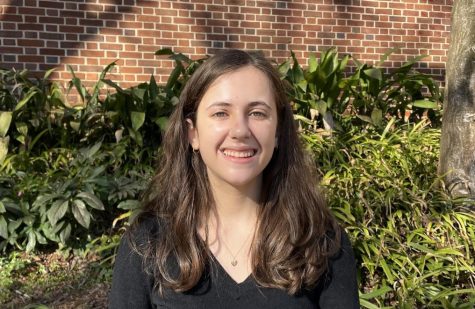Increased use of technology facilitates cheating
With the use of their own computers, students are able to avoid teachers monitoring their activity.
January 5, 2022
Teachers are having difficulty preventing cheating as classroom technology use increases.
Technology use rose during the pandemic after Midtown moved to online learning. Assessments lacked teacher observation, allowing students to refer to the Internet for help.
“I know there was cheating in virtual school, and I know those habits are very easy to carry over,” psychology teacher Andrew Copeland said. “Because school was virtual, we had to rely on the honor system.”
Copeland hopes to integrate anti-cheating policies, such as paper tests that were used before the pandemic into the new computer-based learning style but concedes there are disadvantages to testing without technology.
“I am considering switching back to paper tests,” Copeland said. “But we’re at a crossroad because we’re supposed to consider the data of students. For understanding data, Schoology for example, is a powerful tool because I can see what questions are missed and what that correlates with.”
One instance that prompted the consideration of new testing methods was in early November when students in an AP calculus class received test answers from students in the previous class period.
“Some students feel that they know what went on, but no one really wanted to say anything,” AP calculus teacher Talyssa Hunter said. “There was no hard evidence, and without evidence and proof, there’s nothing we can do.”
June*, a student in Hunter’s class where the cheating occurred said students may feel pressure to cheat in order to maintain high grades.
“When everybody is cheating and getting good grades, it makes you want to do it too because obviously, everyone wants good grades,” June said. “You want to fit in the curve and improve your grade in the class, but I would be mad if I knew someone cheated and got a better grade than me when I didn’t cheat.”
Hunter is making improvements to testing policies by implementing locked browsers for assessments such as Securly.
“Students have to use an APS-issued Chromebook to complete assessments, and if they don’t, we’ll provide them with one,” Hunter said. “This way, we can monitor what they’re doing using Securly. We hope students will take the proper steps to be honest and know that what we’re doing is for their benefit.”
Many AP or Honors courses grade on a curve for assessments, meaning the teacher improves test grades based on the distribution of the scores. For instance, if students perform poorly on an exam, the curve will proportionately boost the students’ grades. The high scores obtained by students who cheat can cause the curve to have less of an impact on the students who scored lower.
“I understand the frustration that cheating can cause because it messes up the curve,” June said. “I know that was a reason other calculus classes were mad because they were worried the curve wasn’t going to give them a lot of points back because of our class.”
Junior Jeffrey Hallett said teachers need to take preventative measures that tackle the cheating dilemma head-on.
“I think there are many solutions to prevent cheating, but I also think that it is worth looking into why so many students felt the need to cheat in the first place,” Hallett said. “Sometimes, the issue at hand can be a direct result of other factors, and it could be best to fix the root of the problem before trying to crack down on the result of that problem.”
While online testing can create an easier outlet for cheating, Copeland said students who want to cheat will continuously find ways to do so, no matter what form the test is administered.
“Tests online can facilitate cheating more, but they also may not,” Copeland said. “In my class, it does because it presents a crutch. It’s easy to search for answers if I’m not actively monitoring screens, but pre-Covid, there were numerous instances of cheating that weren’t on virtual tests. Someone may snap a picture of answers that get out to other students.”
Hallet doesn’t think taking tests on paper is the right solution.
“I, personally, would not like to take tests on paper, but that doesn’t have something to do with cheating, more with the fact that I prefer to use digital resources,” Hallett said. “I try to take all of my notes and complete all of my assignments digitally because I feel like, as a school, we go through way too much paper.”
Copeland said cheating takes away the incentive for teachers to ensure students learn material.
“It hurts my feelings when people cheat because then I think ‘what’s the point?” Copeland said. “Why would I try to make a lesson better or put effort into something if you’re not going to care or try? What’s the point of me being here?”
*June is an anonymous name who participated in the cheating in Hunter’s class.








